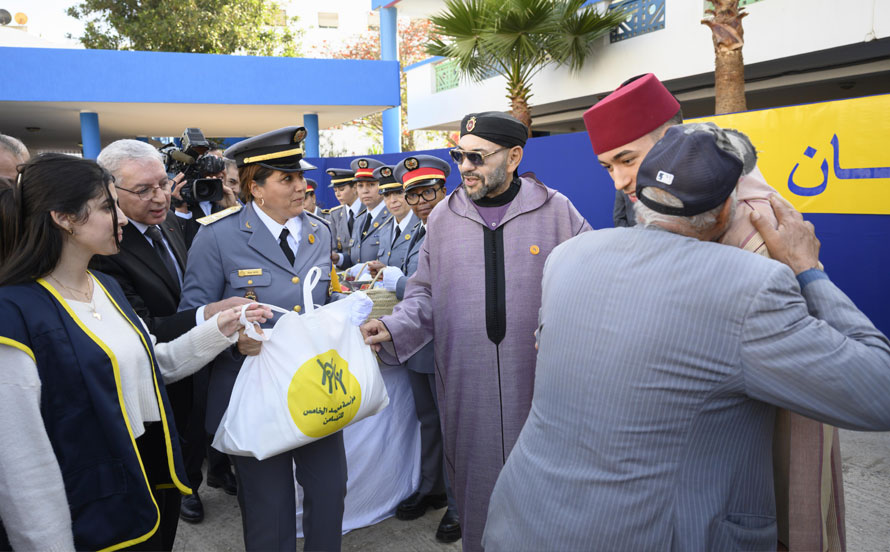Back to the List
Launch of the 24th edition of ramadan national food support operation


His Majesty King Mohammed VI, may God assist him, launched the national distribution of Ramadan food aid operation on the first day of the Holy Month at the Al Fqih Sidi Mohammed Britel school located in the Sidi district Moussa in Sale.
Organized by the Foundation, this large-scale operation is intended to provide direct support to needy families and vulnerable people living throughout the Kingdom.
The operation is special this year, on Royal Instructions, 1,000,000 households, 400,000 more compared to 2022, of which 80% represent the share of households established in rural areas, totaling 5 million individuals will benefit from food support. His Majesty also gave Instructions to improve the selection of food aid with new products such as rice and UHT milk.
The solidarity commitment and the significant increase in distribution reflect the great benevolence and the constant concern of the Sovereign towards the poor especially in the current economic context.
For the 24th annual Ramadan food support operation, a total budget of 390 million dirhams has been mobilized for the purchase, packaging and delivery to distribution points of 9 products: 10 kg of flour, 5 liters of cooking oil, 4 kg of sugar, 1 kg of lentils, 1 kg of vermicelli, 850 g of tomato puree, 850 g of tea, 6 liters of UHT milk and 5 kg of rice.
Funding was provided by the Mohammed V Foundation for Solidarity and its partners; the Ministry of the Interior (Direction Générale des Collectivités Locales) and the Ministry of Endowments and Islamic Affairs.
As every year, the operation's execution system, implemented with the assistance of the Entraide Nationale, the caïdats and the local authorities, is subject to checks, in particular at the level of two committees, one local and the other provincial authorities, who ensure that on the ground the follow-up is provided to the Distribution Centers, as well as the identification of the beneficiaries and the direct delivery of foodstuffs. As for the identification of heads and representatives of beneficiary families (1,000,000 of which 77% come from rural areas), this is subject to field work carried out by local authorities. It makes it possible to assess their living conditions and to establish their current situation on the basis of socio-economic vulnerability.
